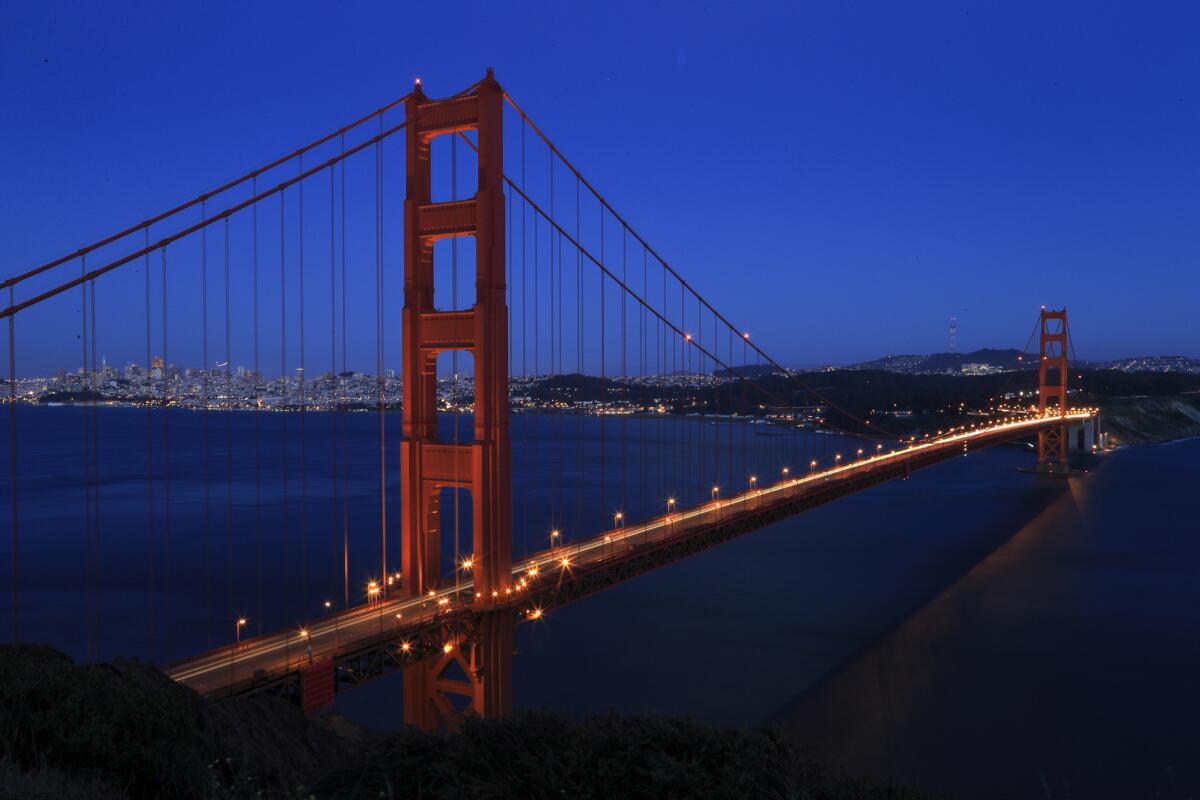San Francisco blacklists 22 states for restrictive abortion laws

- Share via
San Francisco is blacklisting 22 states that have restrictive abortion policies, saying that it will no longer do business with those states “because of their severe anti-choice policies.” Nine of the states were already on the city’s banned list based on LGBTQ laws that the city deemed to be discriminatory in July.
Mayor London Breed and Supervisor Vallie Brown, the author of the ordinance, announced the decision Wednesday. In addition to travel restrictions to those states, the city will not enter into any new contracts with companies headquartered in any of the 22 states.
“Every day in this country, women’s reproductive rights are threatened, and we have to fight back. Just as we restricted spending with states that have laws that discriminate against LGBTQ people, we are standing up against states that put women’s health at risk and that are actively working to limit reproductive freedoms,” Breed said in a statement. “By limiting travel and contracting with certain states, we are sending a clear message to states that disregard the right to abortion.”
The blacklisted states are Alabama, Arkansas, Florida, Georgia, Indiana, Iowa, Kansas, Kentucky, Louisiana, Massachusetts, Mississippi, Nebraska, Nevada, North Dakota, Ohio, Oklahoma, Pennsylvania, South Carolina, South Dakota, Texas, West Virginia and Wisconsin. Alabama, Iowa, Kansas, Kentucky, Mississippi, Oklahoma, South Carolina, South Dakota and Texas already were on the city administrator’s list due to their LGBTQ laws and policies.
The targeted states are those that ban abortion before a fetus reaches viability -- the point when a fetus can live outside the womb. A fetus generally reaches viability between 24 and 28 weeks.
According to the Guttmacher Institute, a nonprofit that focuses on abortion rights and women’s health, all 22 states ban abortion after between 13 and 24 weeks. Two of those states have attempted to ban abortion throughout pregnancy, and five have attempted to ban abortion at six weeks, based on the presence of a fetal heartbeat.
More than 1,000 abortion restrictions have been enacted by various states since Roe vs. Wade, the 1973 Supreme Court decision upholding the right to an abortion. According to the Guttmacher Institute, one-third of those restrictions were made between 2011 and 2017. Several states have laws that could be used to restrict abortion in the absence of Roe vs. Wade, and eight states have laws that would trigger partial or full bans if Roe vs. Wade were overturned.
The city is aware that its decision alone may not have a severe impact on any one state, but hopes that it may influence other municipal or national entities to join.
“Although tax revenue from San Francisco alone may not be sufficient to encourage states to rethink their laws, if other cities and states follow San Francisco’s lead, the financial pressure might be enough to prompt policy changes,” the mayor’s office said.
The ban will go into effect on Jan. 1.
More to Read
Sign up for Essential California
The most important California stories and recommendations in your inbox every morning.
You may occasionally receive promotional content from the Los Angeles Times.














